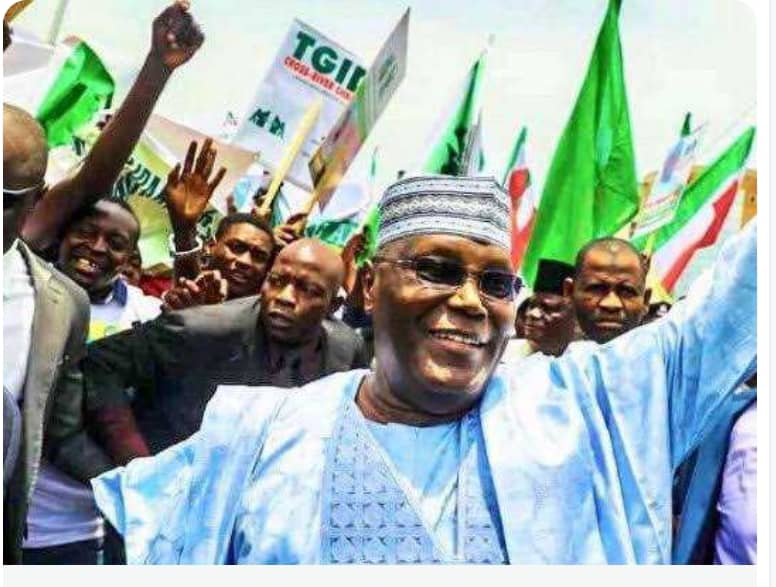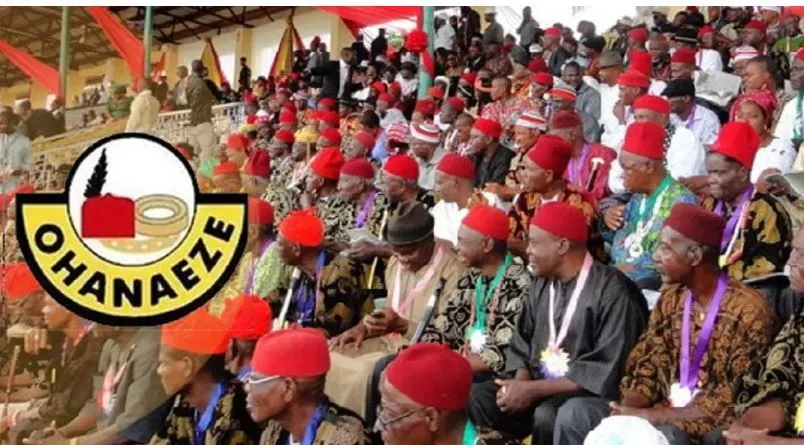By Emeka Alex Duru
When the former Senate President, Chuba Okadigbo, sniggered that what existed in Nigeria were merely, rallies, not political parties, many did not understand his drift. But facts continue to prove him right, almost daily. We may look at the two concepts to appreciate Okadigbo’s observation.
A rally is a public meeting of a large group of people, especially supporters of a particular opinion. It is usually adhoc and lacks precise and sustainable objective.
A political party, on the other hand, is an aggregation of people with similar ideas about politics and specific ideological or policy goals. A political party coordinates candidates to compete in a particular country’s elections, among other functions.
Nigeria is yet to have political parties, strictly speaking, if we go by developments in the two major political organisations in the land – the Peoples Democratic Party (PDP) and All Progressives Congress (APC). At most, what we have, are platforms for politicians to win election, appropriate the so-called national cake and cross over to another when things stop working in their favour. This orientation accounts for the fluidity of movements among chieftains of the two political parties from one to another, especially during and after major elections.
When also the leaders mouth justice, peace and unity, they do so to hoodwink the people. They do not mean what they preach, hence they discard them at will, as long as their interests are affected.
Take a look at the PDP, for instance. At its formation on July 29, 1998, the facilitators had dreamed of a party that would put the Nigerian nation on a new phase of political engineering. Their goal was to institute a process that would ensure just and equitable distribution of power, resources, wealth and opportunities in line with the principles of power shift and power sharing.
Rotation of key political offices and equitable devolution of powers to zones, states and local governments so as to create socio-political conditions conducive to national unity and to defend the sanctity of electoral democracy, ranked high in the party’s agenda.
APC at formation in 2013, had described itself as a change with a pledge to restructure the country, devolve power to the units, with the best practices of federalism and eliminate unintended paralysis of the center.

Both had preached rotation of key offices in the land among the major component units. These were the considerations that informed the PDP giving the South West the chance to produce the president through Olusegun Obasanjo, in 1999. In 2007, it conceded the slot to the North through the late Umar Yar’Adua. The South-South also had a feel of the office through Goodluck Jonathan. The expectation was that it was going to be the turn of the South East, next time.
In the APC, it was hoped that with President Muhammadu Buhari from the North teaming with Vice President Yemi Osinbajo from the South West, the slot would come to the South East in 2023.
But when it mattered most, the two parties treated the zone in a manner unbefitting of partners in a project. Against expectations by many, PDP literally parceled out its ticket to the North, at its May 28 presidential primary. APC chose the South West at its June 7 -8 special convention. As in the PDP, the South East was treated with scorn.
The outcomes of the primaries by the two parties, were not surprising, though. Chinua Achebe, the literary icon saw it earlier in his incisive book; The problem with Nigeria. He wrote; “Nigerians of all other ethnic groups will probably achieve consensus on no other matter than their common resentment of the Igbo”. That has been the arrangement all the while. PDP and APC merely followed the trend.
That is why the argument that aspirants from the zone featured in both contests, does not stand. What transpired were delegates’ elections, not general elections. Delegates were chosen from the 774 councils in the country. The five states in the South East have only 95 local government areas. Of the 787 PDP delegates, it had only 95. Even if the 95 delegates had voted for one of their own, votes from Kano, Katsina and Kaduna, would have rubbished their efforts. APC operated on similar note.
What was needed was an understanding based on equity fairness and justice, to region a sense of belonging. That was the kernel of the speech by Dr. Ogbonnaya Onu, former Minister for Science and Technology at the APC convention. In raising his voice and hands and asking, ‘where is the justice; where is the justice; where is the justice (in the system)?’, Onu raised moral questions that have not been answered by Nigeria over the years. This is a question that has been resonating since the organised pogroms against the Easterners in 1966, leading to the 1967-1970 Civil War. It continues to fester as a cancerous wound.

The proclamations of ‘no victor, no vanquished’, by the military administration of General Yakubu Gowon, at the cessation of field hostilities in 1970, did not address the question. Rather, the victors, comprising the other parts of the federation, have through exclusionist policies, been rubbing it to the East that its people lost the war. Equally, the declaration of reconciliation, reconstruction and rehabilitation by Nigeria at the time, has turned out a mouthy expression lifted from the United State of America at the end of its civil war, without any conscious efforts at domestication, here. Consequently, in all parts of the East, there are visible signs and evidences of a people defeated in a war that was forced on them. PDP and APC have simply regurgitated that feeling of alienation.
When therefore you see youths from the South East, arguing that Nigeria does not hold any future for them and are pushing for exit from the system, no matter how the agenda has been corrupted and mismanaged, you will understand the point in their agitation. PDP and APC have proven that Nigeria, as presently constituted, has no place for the Igbo. It is that bad!
No system thrives in absence of justice. It is only a mad man that does one thing repeatedly and expects different results. Since the end of the civil war, the South East region has been operating on the fringes in Nigeria. The exclusion has assumed an official policy of the state in the Buhari administration. Incidentally, in all these attempts to keep the people and the region at bay, the country has suffered.
2023 looks grimmer for the people, with the two major parties in the land jilting them. They had been on the periphery before now. There are signs of their being completely elbowed out of the system in the days ahead. And while they are down, Nigeria remains static, in what they say in street lingo, ‘motion without movement’.
DURU is the Editor, TheNiche Newspapers, Lagos (08054103327, [email protected])


















